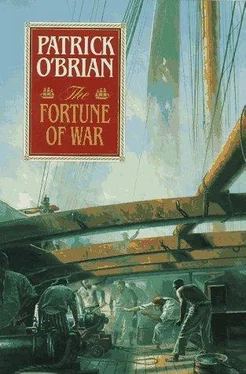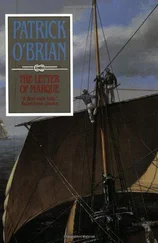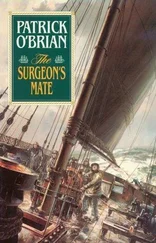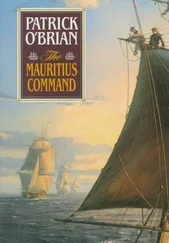Patrick O'Brian - The fortune of war
Здесь есть возможность читать онлайн «Patrick O'Brian - The fortune of war» весь текст электронной книги совершенно бесплатно (целиком полную версию без сокращений). В некоторых случаях можно слушать аудио, скачать через торрент в формате fb2 и присутствует краткое содержание. Жанр: Книги. Описание произведения, (предисловие) а так же отзывы посетителей доступны на портале библиотеки ЛибКат.
- Название:The fortune of war
- Автор:
- Жанр:
- Год:неизвестен
- ISBN:нет данных
- Рейтинг книги:3 / 5. Голосов: 1
-
Избранное:Добавить в избранное
- Отзывы:
-
Ваша оценка:
- 60
- 1
- 2
- 3
- 4
- 5
The fortune of war: краткое содержание, описание и аннотация
Предлагаем к чтению аннотацию, описание, краткое содержание или предисловие (зависит от того, что написал сам автор книги «The fortune of war»). Если вы не нашли необходимую информацию о книге — напишите в комментариях, мы постараемся отыскать её.
The fortune of war — читать онлайн бесплатно полную книгу (весь текст) целиком
Ниже представлен текст книги, разбитый по страницам. Система сохранения места последней прочитанной страницы, позволяет с удобством читать онлайн бесплатно книгу «The fortune of war», без необходимости каждый раз заново искать на чём Вы остановились. Поставьте закладку, и сможете в любой момент перейти на страницу, на которой закончили чтение.
Интервал:
Закладка:
'Ah,' said Stephen, 'that I cannot deny.'
'My brother Numps - 'said the purser.
'Vengeance carried forty-two-pound brass carronades,' said the second lieutenant, 'and that I know very well, for I was third of the Seine when we took her in the Mona Passage.'
'My brother Numps - 'said the purser.
'And these carronades were mounted on a new non-recoiling principle: let me draw it on the cloth.'
Despairing of a wider audience, the purser turned to Stephen and McLean; but Stephen, feeling that no good could come of brother Numps, nor of the non-recoiling principle, glided from his place.
The discussion carried on in the gunroom without him, still on the subject of the Americans, for it seemed that Numps had visited the United States: and it continued in the cabin, perhaps at a slightly higher level, but still very tedious for one who was not a sailor. There were times when it seemed to Stephen that they would never stop, and that boredom would be the death of him, since to escape their endless prating he was obliged either to pace the deck in the cold dampness or to take refuge in the fore-peak, which was equally cold and damp, with the reek of a charnel-house added. His cabin was not altogether without comfort, but it was separated from the midshipmen's berth by so thin a bulkhead that even the stout balls of wax that he thrust into his ears could not keep out their din. 'As I grow older,' he reflected, 'I become less tolerant of noise, boredom, and promiscuity; I never was well suited to a life at sea.'
Then abruptly, from one day to the next, La Fl�e was in deep blue water; the early morning air was warm; waistcoats and comforters were stowed away, and the noonday sun was observed by a quarterdeck full of men and boys in light round jackets. Soon the jackets disappeared, and they passed under Capricorn in shirt-sleeves: dinner with the Captain, which entailed full uniform, was no longer looked forward to so eagerly, except among the midshipmen, a penurious, hungry crew, whose small supply of private stores, bought at the Cape, had long since been squandered in high living, and who were now growing thin on salt horse and biscuit, no more.
It was well north of Capricorn that their fantastic luck with the wind deserted them. The south-east trades had had so little south in them that La Fl�e was nearer Brazil than she had intended to be when they died away altogether, leaving her wallowing on a heavy swell under a sun so huge, so very near, and so furious that even at first dawn the metal of the guns was still quite hot.
After a week of this, when all real recollection of the cold had vanished, when even coolness seemed to belong to some ideal existence, a faint breeze, coming down from the equator, directly against their wishes, filled the sails at last, giving the ship life and motion. Now Warner could exert all his seamanship, the parboiled hands all their zeal, in beating slowly north.
He did so with admirable skill, applauded by those, such as Captain Aubrey, who could appreciate his endeavours, ignored by others, such as Stephen and McLean, who cared for none of these things. They had some interesting sunstrokes in their sickbay now, together with the usual diseases that some of the hands had found time to acquire in their few moments of free or stolen time at Simon's Town; but still their main preoccupation was what remained undecomposed of the treasures in the forepeak, mostly bones, salted skins, and small creatures or organs in alcohol. Everything was at least catalogued by now, and much was fully described. McLean was a fanatical describer, a dissector of wonderful dexterity: a most dogged, stubborn worker. After a day of such heat that tar dropped from the rigging and the pitch in the deck-seams bubbled under foot - perhaps the twentieth of such days in succession, with all the ship's boats towing astern to keep them watertight - Stephen left him down in his private lair, dissecting an eared seal's foetus, the pride of their largest jar of spirits. Although this was probably the foetus of the new species that was to be called Otaria macleanii and that was to win them undying glory, Stephen could no longer bear the dense cloud of tobacco-smoke (for McLean worked with his pipe in his mouth), the fumes of alcohol, and the enclosed, fetid heat, after the gunroom supper of pease-pudding. He wished McLean good night, warned him not to overtax his eyes, heard his abstracted grunt, and groped his way up ladders to the deck. The watch had been set long since, and the ship was very quiet: she was slipping along under topsails alone with the wind one point free, making perhaps a couple of knots through the long easy swell. The master had the watch, and he was not one to badger the hands with jib and staysails after a wearing day hogging and boot-topping the ship's weed-grown sides for some minute increase of speed. Stephen could see him, as his eyes grew accustomed to the dark, standing near the quartermaster at the con, in the glow of the binnacle light. Beyond him, by the taffrail, Jack was showing his midshipmen the stars, and Forshaw's high young voice could be heard piping about the Southern Cross. Such stars! The young moon had set, and they blazed there in a velvet sky, hanging, he would have sworn, at different heights, with Mars a startling red among them. A certain refreshment rose from the sea, a damp exhalation almost cool, and Stephen walked forward across the space amidships where in ordinary times the boats stood on their chocks and which was now strewn with sleeping or at least recumbent figures, their heads enveloped in their jackets. He made his way through them to the bows, then carefully out along the bowsprit as far as the spritsail yard. There he turned, and sitting easy, let himself go to the smooth motion of the ship, gazing now at the ghostly foretopsail, now up at the masthead describing intricate regular curves among the stars, and again down at the cutwater, perpetually advancing, never reaching him, shearing the black sea with a faint white gleam. There was a continual living sound of blocks heaving, the strain and slight creak of wood and cordage, the hiss and ripple and surge of the water: he was very tired, quite why he could not tell, unless it was the effort of keeping his mind from anxious, fruitless worrying about Diana - she was very present to his inward eye these days - and the events in Catalonia. Back there in the ship the bells struck one after another, and every time the sentinels called 'All's well' from their various stations. Perhaps it was their reiterated cries that impressed their sense upon his unreasoning part, perhaps several of a thousand other causes, but after some time his tiredness was no longer a jaded, harassed fatigue but mild, calm, physical weariness, a comfortable desire for sleep. He crept back, holding his breath and any rope that came to hand: if Jack or Bonden should discover him he would have to endure their reproaches: he would be harshly blamed. However, he managed the descent and walked aft; Jack and his star-gazers were no longer there, so after a word with the master and a long stare at the wake, the faintly phosphorescent starlit wake with the boats black in it, like little whales, he went below.
Unfortunately the midshipmen were still keeping it up. The liveliest of the ship's young gentlemen had been brought up by his uncle, an Oxford don, and he had instituted gaudy nights. This was one of them, and through his wax Stephen could hear
Our Captain was very good to us,
He dipped his prick in phosphorus;
It shed a light all through the night
And steered us through the Bosphorus.
Again and again they sang it, and again and again there was the howl of laughter at the end: it seemed to grow funnier with each repetition, and by four bells they could not get beyond 'was very good to us' before they were overcome by mirth.
Читать дальшеИнтервал:
Закладка:
Похожие книги на «The fortune of war»
Представляем Вашему вниманию похожие книги на «The fortune of war» списком для выбора. Мы отобрали схожую по названию и смыслу литературу в надежде предоставить читателям больше вариантов отыскать новые, интересные, ещё непрочитанные произведения.
Обсуждение, отзывы о книге «The fortune of war» и просто собственные мнения читателей. Оставьте ваши комментарии, напишите, что Вы думаете о произведении, его смысле или главных героях. Укажите что конкретно понравилось, а что нет, и почему Вы так считаете.












